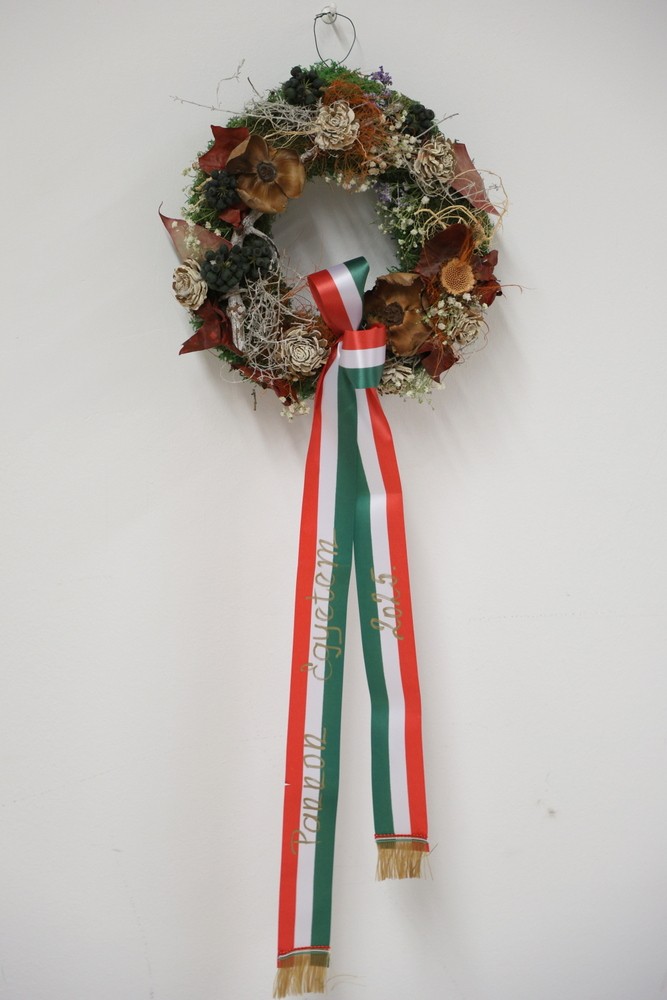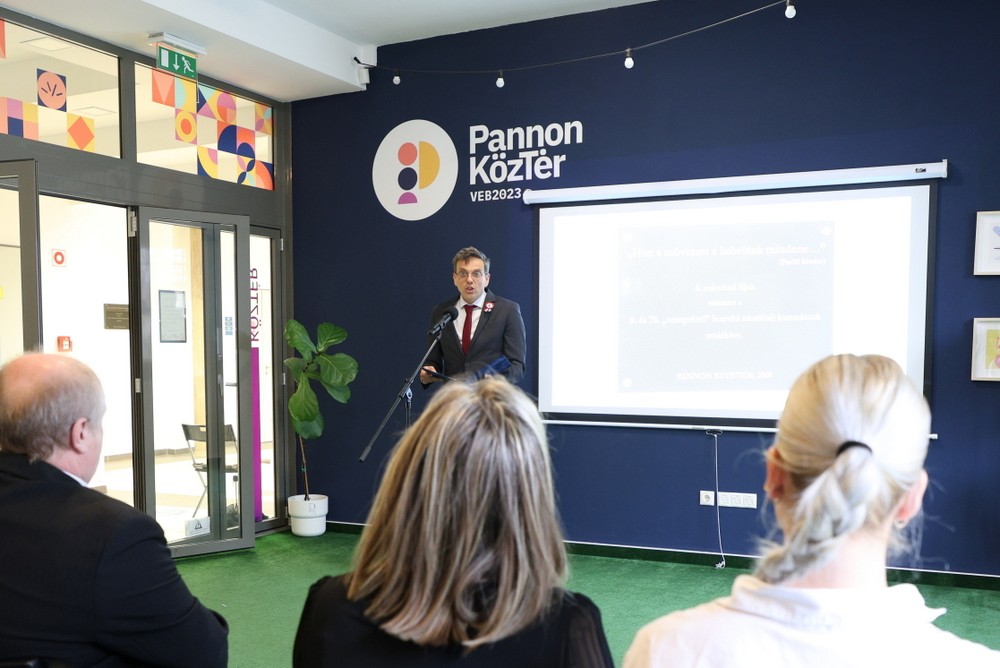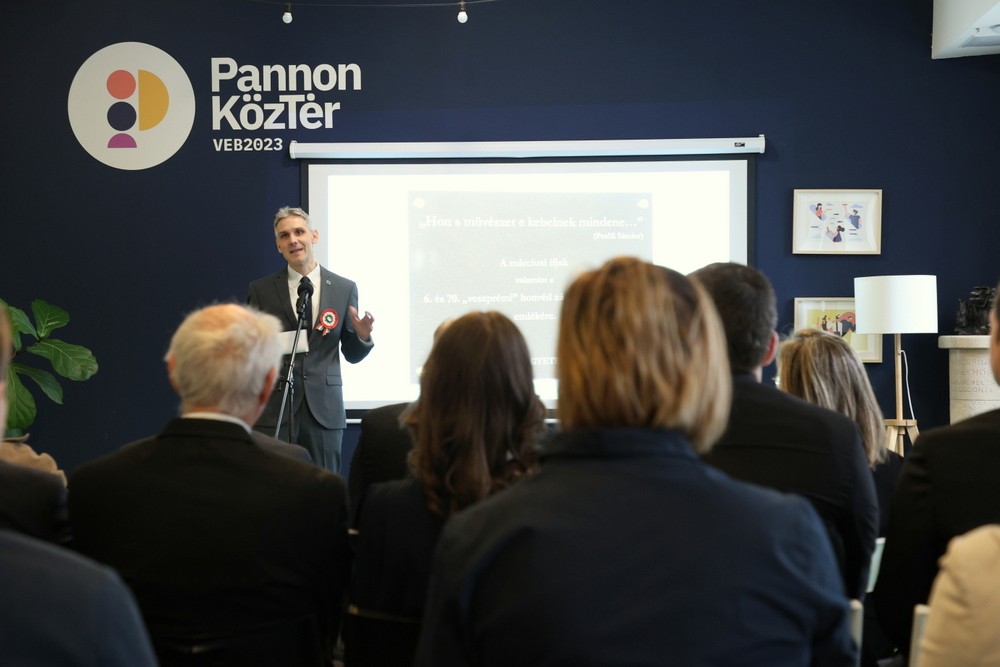Hallgatói portál
- fas fa-search
- Accessibility
Hallgatói portál
" 15th March is the true birthday of Hungarian national consciousness. On this day, the feeling of belonging to the nation became a conscious, community-forming force capable of shaping history," emphasized Dr. János Abonyi in his address.

The Rector of the University of Pannonia, speaking at the March 15 national holiday commemoration held in Building E, stated that in 1848, the idea of the Hungarian nation became not only strong but also exemplary in its inclusiveness. Under one flag, people of various religions, nationalities, and social backgrounds stood together. "Today, the inclusive national idea has sadly narrowed. Exclusion and the search for internal enemies cast a shadow over the broad acceptance that the spirit of 1848 represents. I urge you to preserve the exemplary legacy of the revolutionaries of 1848—to uphold openness, acceptance, and unity as fundamental values," he said.
The Rector also highlighted that without the courageous critical thinking and questioning attitude of the youth, the revolution might never have unfolded. He emphasized that critical thinking remains a fundamental value of the university, as the essence of science and education lies in inquiry, reasoning, debate, and reflection. "Freedom is not only a right but also a duty—a responsibility towards our families, our homeland, and our fellow human beings," he said, adding that the example of the youth of March 1848 still obliges us today to dedicate our talents, diligence, and knowledge to the service of the common good with the intent of betterment.


During the celebration, Gábor Felföldi, head of the Cultural Organization Group, commemorated the 200th anniversary of the birth of Mór Jókai and recited poems by István Petőfi, the younger brother of Sándor Petőfi, who served as a soldier in the 6th Veszprém Honvéd Battalion during the War of Independence. István Sashalmi, a colleague of the University of Pannonia Library and Knowledge Center, also paid tribute to István Petőfi and the Veszprém honvéd soldiers in his lecture.
Photo: Eszter Ódor Tudósné, University of Pannonia